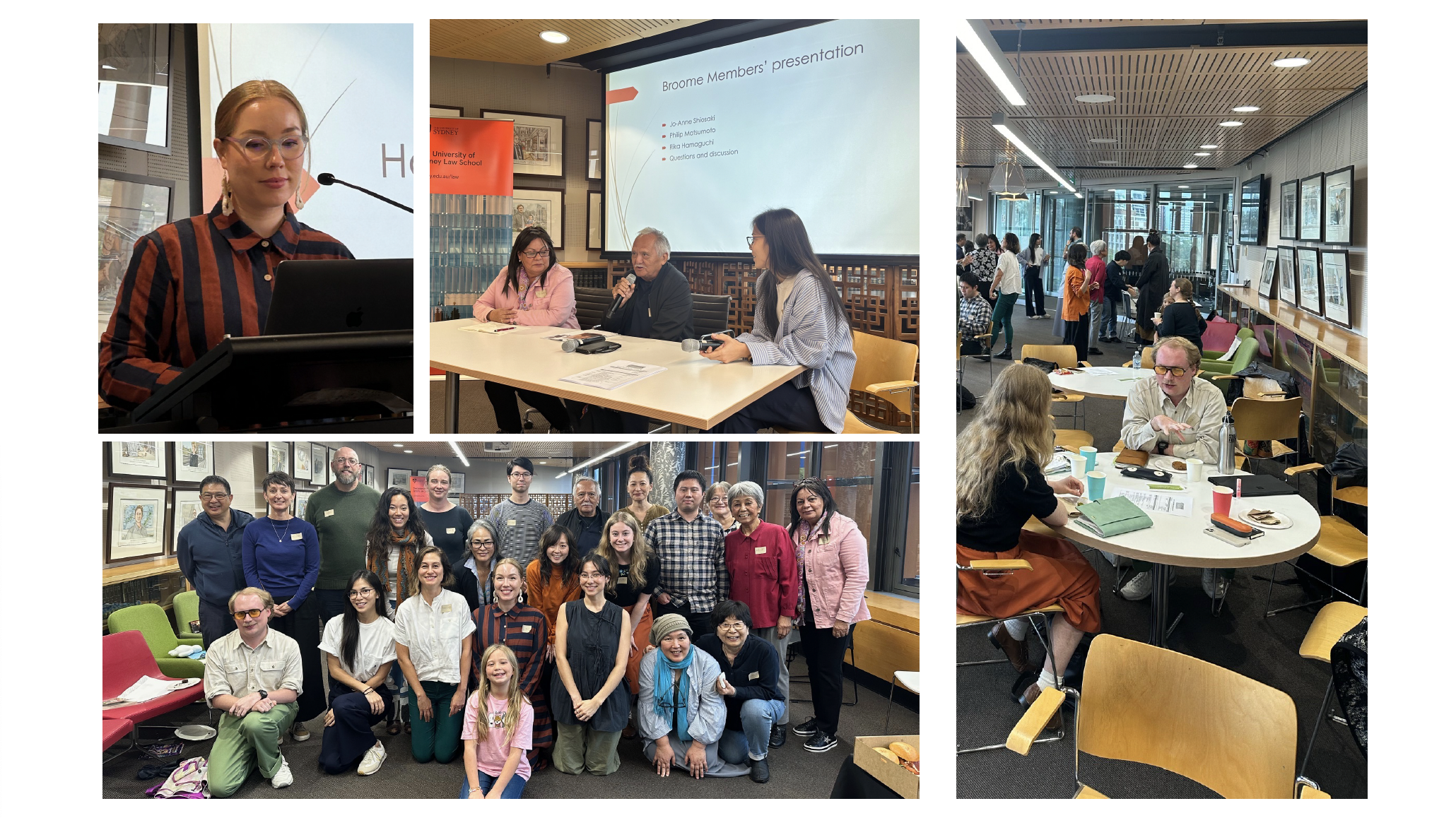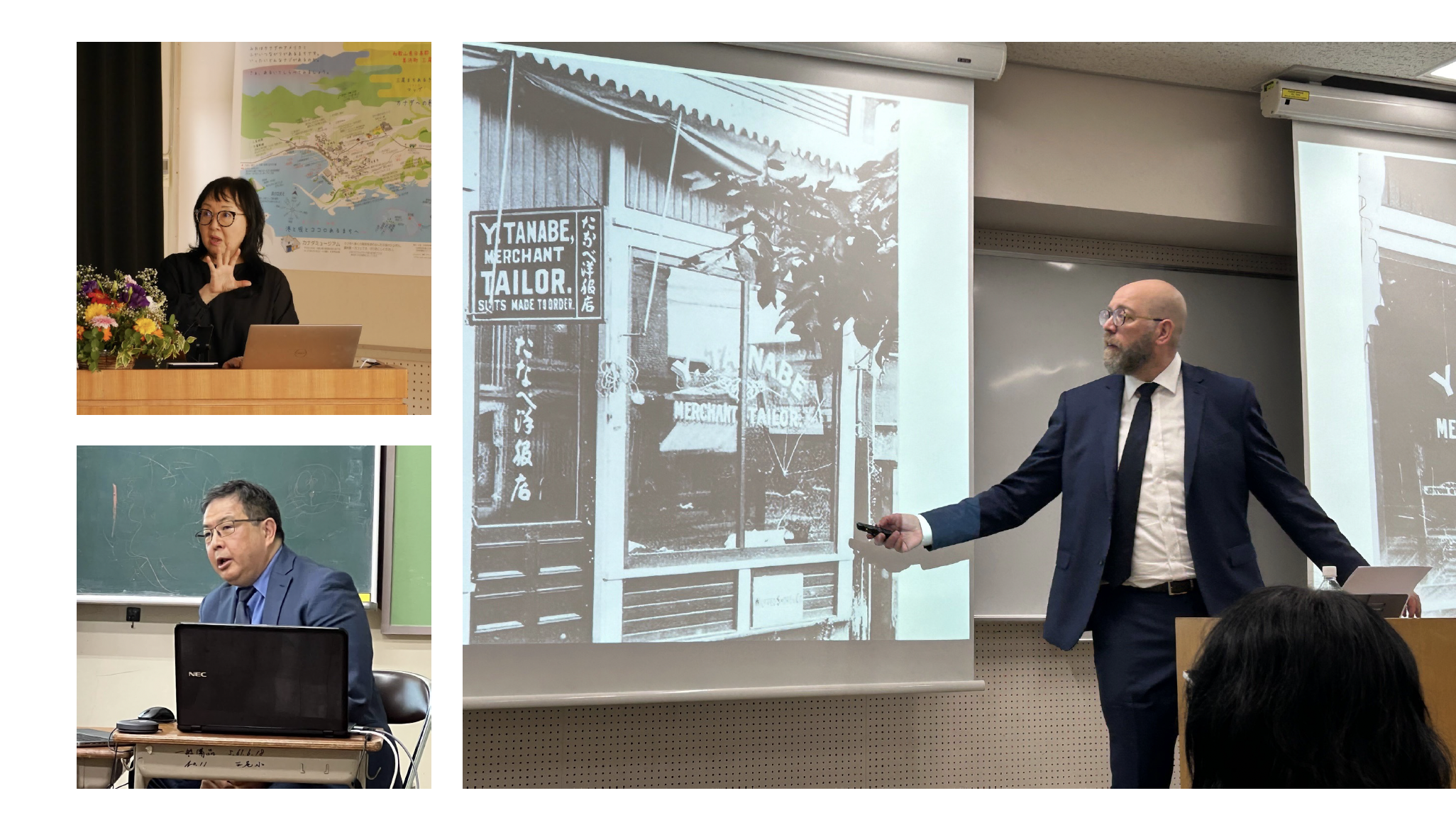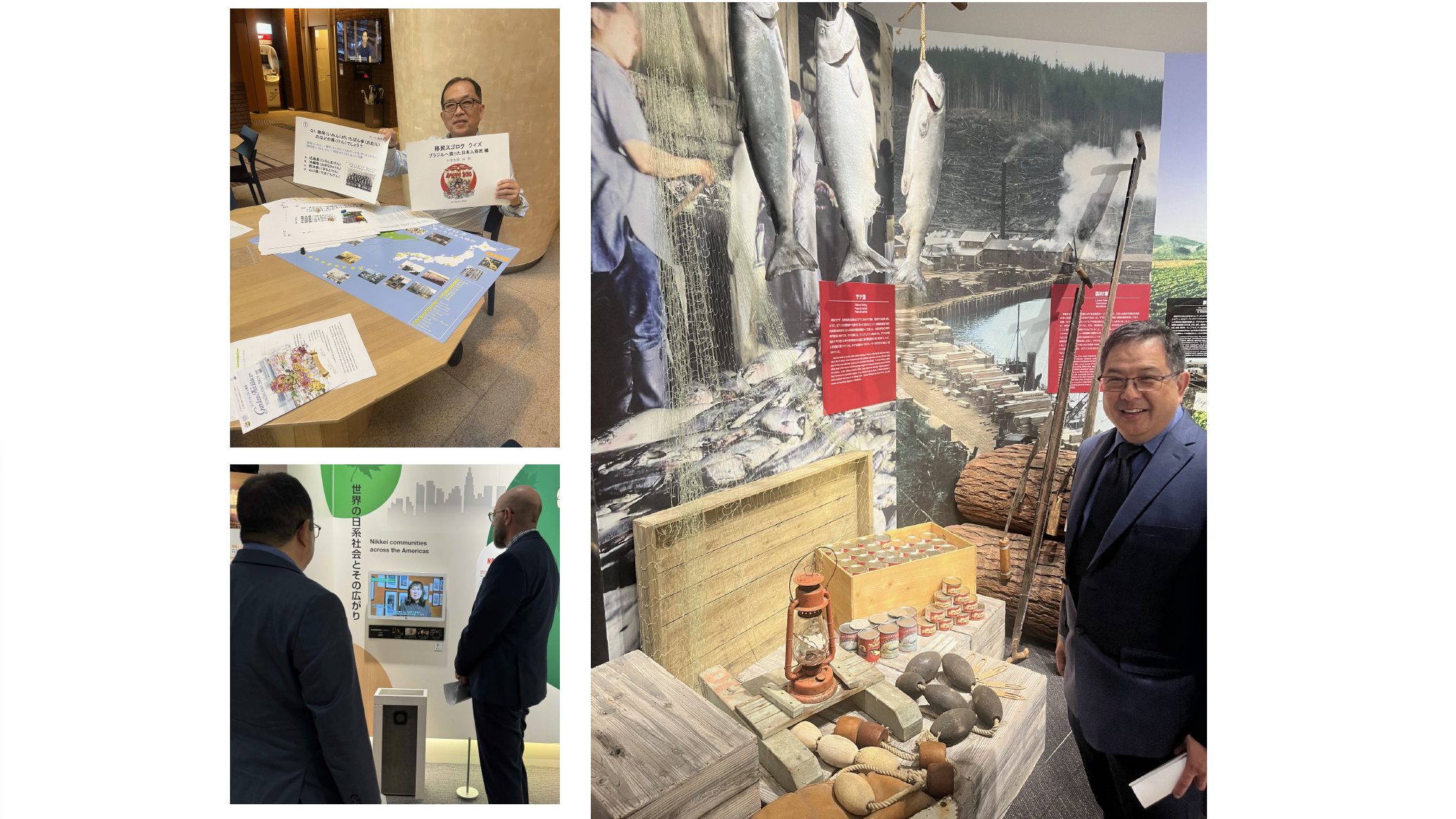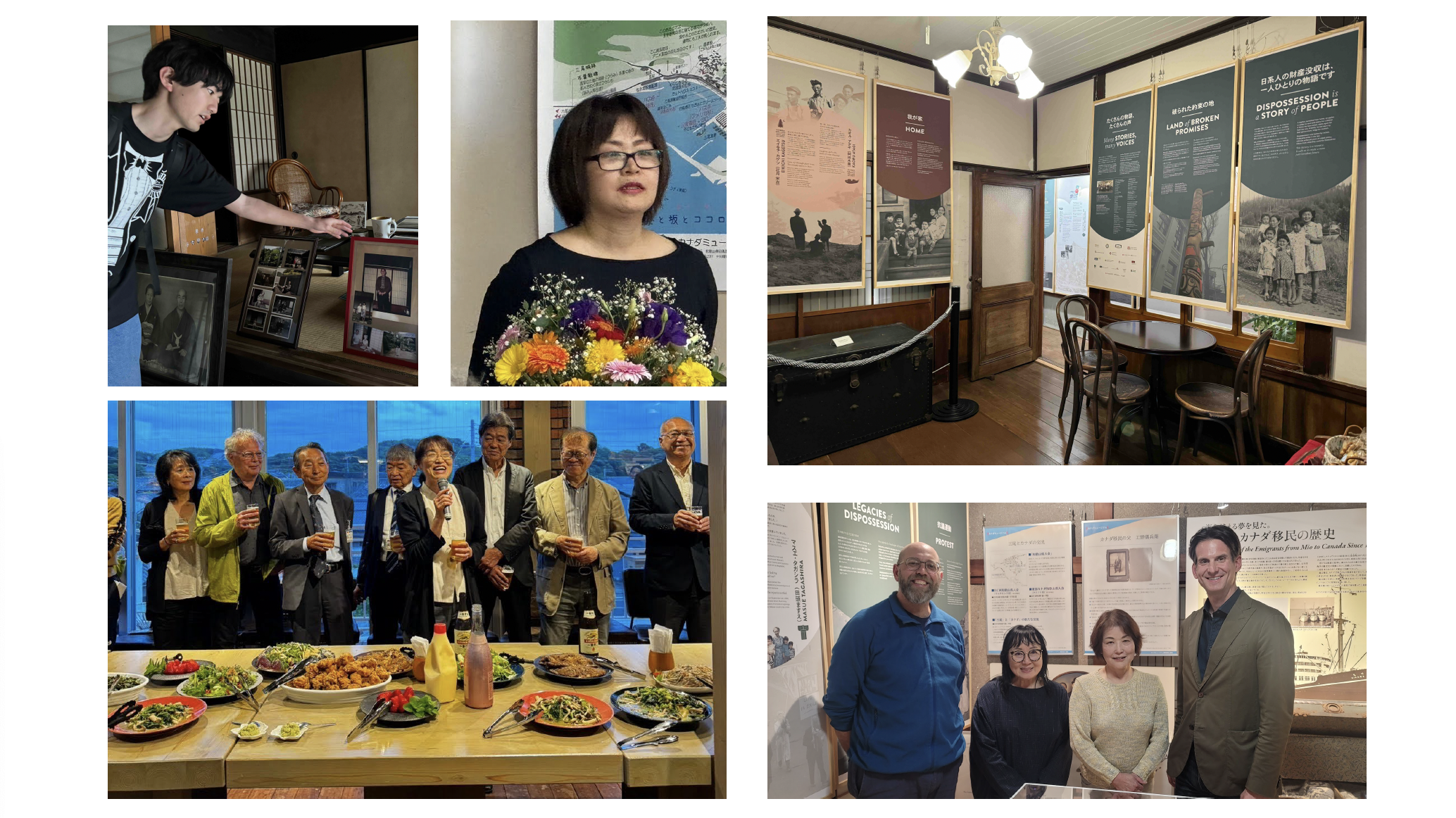Project Director’s Message June 2024
Dear Past Wrongs, Future Choices,
As our partnership reaches the end of its second full year, I’m excited about our gathering momentum. Thanks especially to the hard work of postdoctoral fellow Andrea Mariko Grant, who acted as curator, we’ve completed the exhibitions we planned in Esquimalt, British Columbia. Under the leadership of Museum Exhibit ClusterChair, Sherri Kajiwara, coordinated research and planning have begun for further exhibitions at institutions across the partnership. Lisa Uyeda, Theressa Takasaki, Masumi Izumi, and project archivist, Tomoko Shida in the Archives Cluster, are leading a team of researchers who are collecting materials from repositories across the globe to document the history of Nikkei uprooting. This summer, teachers and educators from Australia, Brazil, Canada, Japan and the United States will join our Field School in British Columbia, Mike Perry-Whittingham will lead their work to advance our approach to this history as a global educational project. Susanne Tabata reports that the film initiative is percolating, with news soon to follow on that front too. Finally, we’ve produced a series of exciting scholarly and artistic works in progress, which will soon be drawn together into a pop-up exhibition in Banff as well as our partnership’s first scholarly book manuscript.
In May, Mike Abe (Project Manager) and I were able to travel to Australia and (with Sherri Kajiwara, Nikkei National Museum) Japan, where everywhere we went, we saw evidence of the fruits of this partnership. Our encounters with PWFC members active in those countries impressed upon us the importance and potential of the upcoming meetings in Banff, the first chance for many in our collective to experience first-hand the reach and resonance of the work we’re doing together. Sprinkled through this newsletter are a few photographs from that trip, providing glimpses of the partnership in work.

Mike Abe and Jordan Stanger-Ross attended a meeting of Nikkei Australia in early May at Sydney University law school. It was a chance for us to meet many members of the organization for the first time. Nikkei Australia is full of energy, potential, and complexity, as conveyed in the organization’s wonderful report. Landscapes of Injustice veterans would recognize in these meetings the challenge and reward of bringing together scholarly and community-based perspectives across differences of experience, discipline, geographic difference, and generation. To be in the room was to be in the presence of something powerful and important coming into being. It was a privilege to attend. Thanks to organizers Masako Fukui and Elysha Rei, as well as Rayner Thwaites and Ashleigh Jo at the law school, who made the event possible.

Partnership meetings in Australia and Japan invited our Canadian delegation of Sherri Kajiwara, Michael Abe, and Jordan Stanger-Ross to present research on Japanese Canadians, and our approaches to partnered research. Many thanks to our hosts for lectures at University of Sydney Law School, Doshisha University, Kyoto University of Foreign Studies, Sophia University, and the Mio Symposium.

At the Japanese Overseas Migration Museum, in Yokohama, Shigeru Kojima shared a wonderful new game on Japanese migration to Brazil, which we’ve carried back to Canada to share within PWFC. In addition, he led us through an exhibition advancing challenging new interpretations of the concept of Nikkei community, which suggest that the community extends beyond people descended from Nikkei migrants themselves to others who cultivate relationships with them. Finally, we revisited the museum’s immersive instalments on Nikkei life, including its diorama on the fisheries in Steveston, Canada.

In the Village of Mio, Wakayama Prefecture, the Canadian delegation met members of the research collective working to revive a migrant-sending region through engagement with history. It was our pleasure to meet Mrs. Mio, the director of the Mio Canada Museum, and to see the Broken Promises exhibition interpreted within that space. Sachiko Kawakami and Masumi Izumi coordinated an international and interdisciplinary symposium, and students like Atsushi Iwanaga shared their scholarly and personal investments in the village. And the food was wonderful!


 Instagram
Instagram